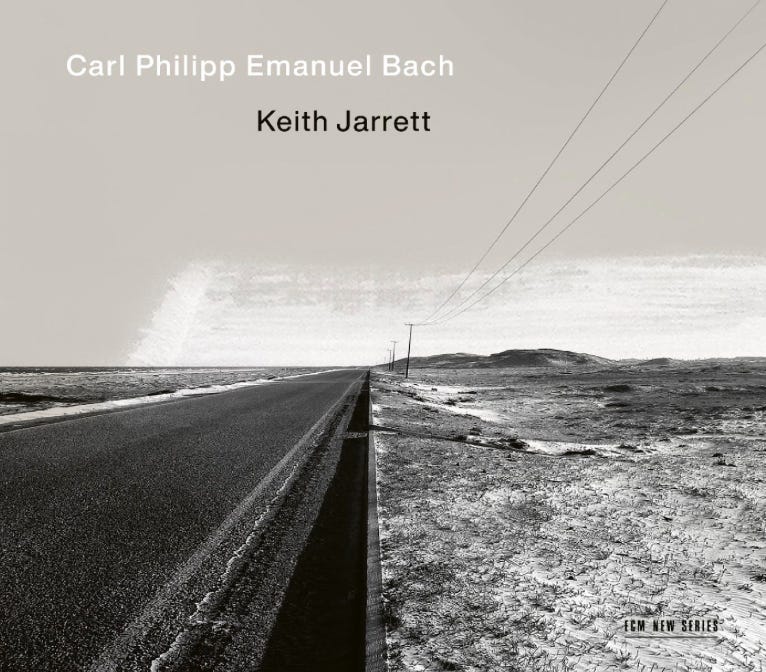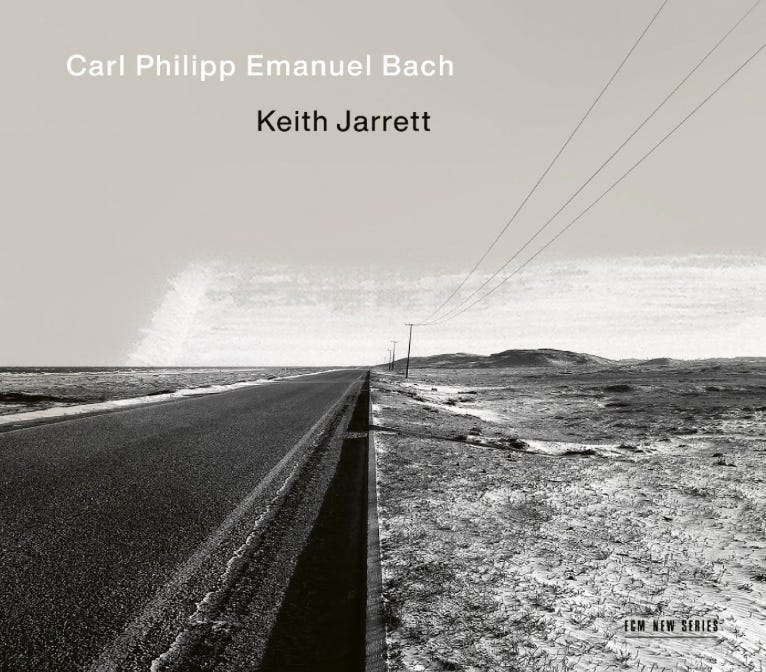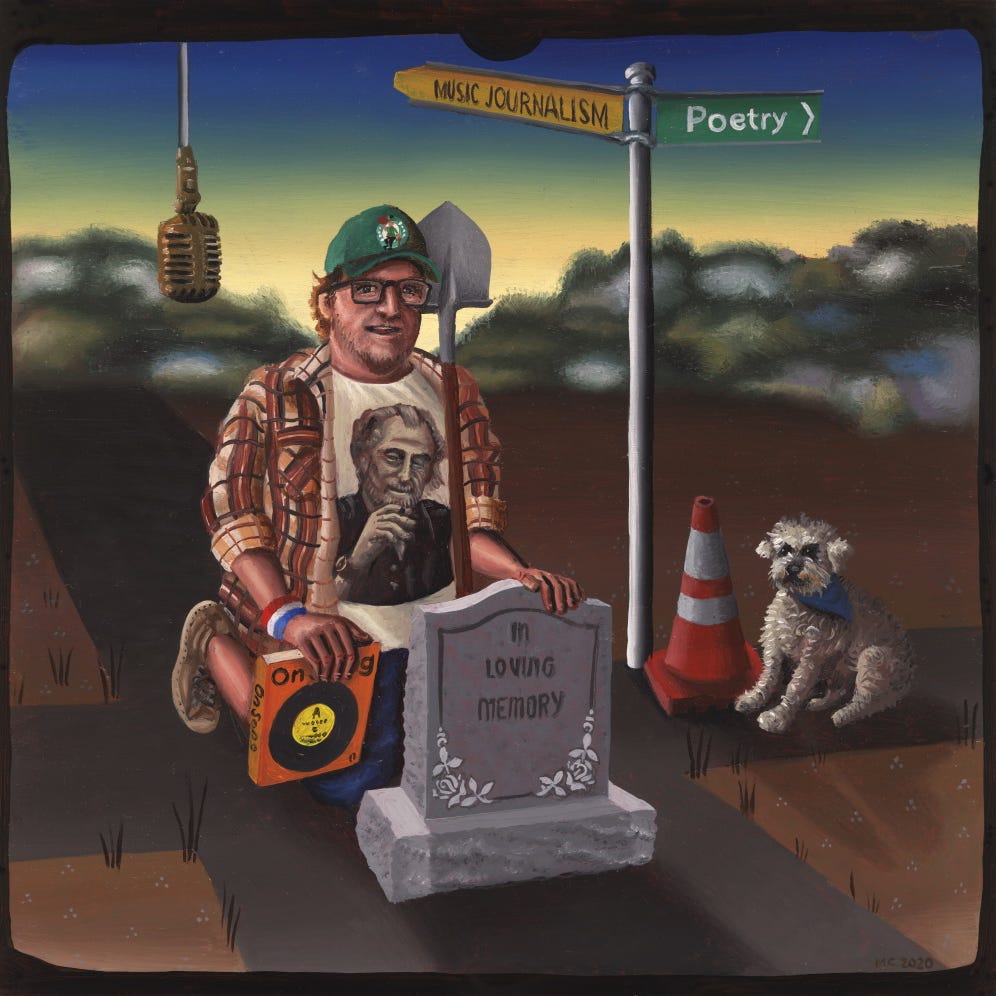Keith Jarrett: Carl Philipp Emanuel Bach
An album review of a Keith Jarrett classical recording that sat in the vault, unissued, for close to 30 years.
Keith Jarrett
Carl Philip Emanuel Bach
ECM
Last week, Keith Jarrett celebrated his 79th birthday. We are lucky to still have him, though it’s heartbreaking to think about how uncertain his future is, following the strokes of 2018 that have rocked his health. He can walk again, he can tinkle the piano one-handed, but he won’t likely perform in public ever again; has all but retired — formally — from music. To clip the wings of a musician who so effortlessly flitted between genres (and even instruments) seems so sad. Jarrett even saying himself, in 2020, that he no longer feels like he is even a pianist.
But there’s some salve in the fact that his labels have so much music to reissue, including many previously unheard concerts. And even, as with this, some previously unheard studio efforts.
Jarrett has, since the early 70s, managed parallel careers in jazz and classical music. The composer he seemed most closely aligned with was Johan Sebastian Bach, certainly he returned to his works as an endless source of inspiration. But this recording, from 1994 — and only released now for the very first time — finds Jarrett working through material from the son of JS.
CPE Bach’s sonatas here have an improvisatory quality to them. They feel so fresh and alive as to almost be composed on the spot. Though it’s Jarrett’s performance of them that gives some of that air — but also makes the music feel exhilaratingly close to much of Jarrett’s own compositional work. Indeed, this — at times — feels like the version of The Koln Concert that goes to work in a suit and tie, rather than loafing about in jeans and a T-shirt.
Across two discs, and some 90 minutes, we have Jarrett with his shoulders squared, and working at the 88 keys during his most prolific period. Not a hair sits out of place on these tunes, even with Keith giving them his very best tousle.
It’s a dream-find for Jarrett fans. But listeners of solo (classical) piano works in general will want to hear this. Particularly because Carl Philip Emanuel is not the first, nor even the second Bach name one usually reaches for to hear such items.
I’m slowly working through as much Jarrett material as I can, enamoured with so much of it as if it hearing it for the very first time. Paradoxically, this album arrived, and despite never hearing it, the motifs, the music, the way its played, it all feels so beautifully, enticingly familiar
.







